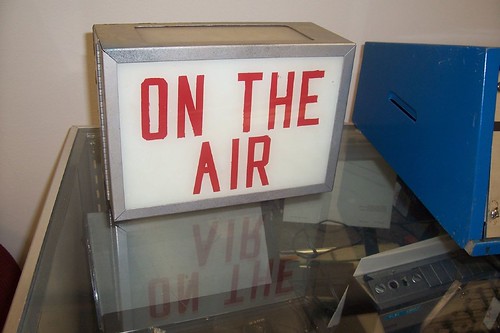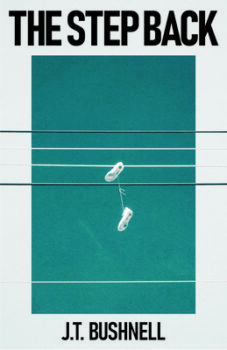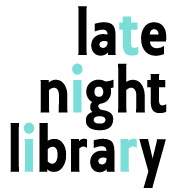 After the end of a five-year relationship with a woman named Karma, Paul Martone moved into a little apartment in Southeast Portland, Oregon, and found himself surrounded by neighbors in their twenties. They worked in food service and partied until three or four in the morning; he was a teacher and maintained slightly different hours. He was also, at 34, single for the first time in his thirties and feeling somewhat out of place.
After the end of a five-year relationship with a woman named Karma, Paul Martone moved into a little apartment in Southeast Portland, Oregon, and found himself surrounded by neighbors in their twenties. They worked in food service and partied until three or four in the morning; he was a teacher and maintained slightly different hours. He was also, at 34, single for the first time in his thirties and feeling somewhat out of place.
“I had this recognition about where I was,” he says. “It wasn’t where these kids were, and I started feeling this artistic clock, like how women are supposed to feel their biological clocks. I felt like I hadn’t been doing enough. I felt like I needed to be doing more than teaching and writing, two practices that had always centered me.”
He had been working on a novel for four years. Since earning his MFA, he had taught composition courses in more than a few colleges and eventually accepted a core faculty position at a college prep academy in Portland. The job allowed him to see how the younger generation was reading and interacting online, and when he reunited with two former students from his MFA days who had started their own podcasts, he started to understand what more he could be doing.
 He contacted a colleague from graduate school, Erin Hoover, who was pursuing her poetry in Brooklyn, New York, and together they created a literary podcast called Late Night Library. In monthly episodes, the bi-coastal duo discuss debut books by emerging fiction writers and poets, leading listeners through one short story or a handful of poems, exploring the work’s themes and their own reactions in detailed but extemporaneous conversation.
He contacted a colleague from graduate school, Erin Hoover, who was pursuing her poetry in Brooklyn, New York, and together they created a literary podcast called Late Night Library. In monthly episodes, the bi-coastal duo discuss debut books by emerging fiction writers and poets, leading listeners through one short story or a handful of poems, exploring the work’s themes and their own reactions in detailed but extemporaneous conversation.
In just over a year, LNL has become something of a phenomenon, earning impressive praise from writers such as Jim Shepard, Steve Almond, Susan Straight, and Dorianne Laux, along with good press from Poets & Writers, Tin House, The Nervous Breakdown, and The Rumpus. It is in the process of incorporating as a non-profit organization, upgrading sound equipment to “NPR quality,” and featuring a range of guest hosts. They just celebrated their one-year mark in April.
One of those guest hosts was me, and so before recording my episode, which appeared at the end of May, I took the opportunity to ask Martone and Hoover a few questions about the enterprise. It took them only a few days to reply. Martone, it turned out, was getting married that weekend at the Portland Public Library—to Karma, of course.
J.T. Bushnell: What was the motivation behind Late Night Library?
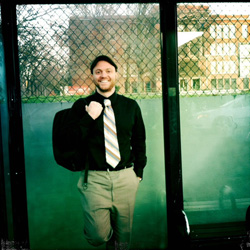 Paul Martone: For a few years, I had been feeling disconnected from literary culture. I was teaching too much and writing too little. I was also becoming increasingly concerned with a radical shift in American culture, particularly as it pertains to the act of reading. I found myself wondering, Does it even matter if I finish a novel? People are reading less poetry and fiction than they used to, and even fewer people read debut titles.
Paul Martone: For a few years, I had been feeling disconnected from literary culture. I was teaching too much and writing too little. I was also becoming increasingly concerned with a radical shift in American culture, particularly as it pertains to the act of reading. I found myself wondering, Does it even matter if I finish a novel? People are reading less poetry and fiction than they used to, and even fewer people read debut titles.
Every poet and writer in America should ask, What’s my role as an artist in the twenty-first century? I think the answer begins with the acknowledgment that the twentieth-century model doesn’t work. Writers can’t rely too heavily on academia, and we can’t dismiss it, either. It’s great to study in an MFA program, and it’s a blessing to teach in one. At the same time, we need to develop and support non-academic literary communities, as well. Most contemporary literature isn’t created for readers with graduate degrees. The kind of books we’re promoting at Late Night Library were crafted for any curious reader.
Another thought: it’s thrilling to have your work published, but literary accomplishments are less meaningful if few people read the work. We’re losing a cultural awareness of literature’s value. Who better to re-ignite the conversation than poets and writers themselves? That’s why many writers are contributing to organizations like Fiction Writers Review and Late Night Library. We feel an obligation to promote literature in physical and virtual spaces. Promotion is a dirty word to some artists, but how do contemporary poets and writers reach a wide audience? We live in an era that demands literary activism. It isn’t depressing, it’s a challenge.
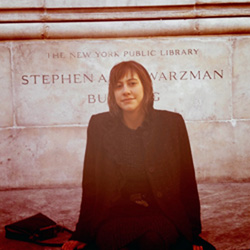 Erin Hoover: Post-MFA, when you’re employed outside of academia, you spend a large portion of your days doing something that has nothing to do with what you studied. My friends and I read books but didn’t talk about them; or if we did talk about them, it wasn’t with the kind of seriousness I’d felt in school. Both of these facts were making me powerfully unhappy in New York. At the point when Paul called me asking if I wanted to start a literary podcast, the idea seemed almost revolutionary: not only was I going to talk about books again, I was going to ask other people to listen to me do it.
Erin Hoover: Post-MFA, when you’re employed outside of academia, you spend a large portion of your days doing something that has nothing to do with what you studied. My friends and I read books but didn’t talk about them; or if we did talk about them, it wasn’t with the kind of seriousness I’d felt in school. Both of these facts were making me powerfully unhappy in New York. At the point when Paul called me asking if I wanted to start a literary podcast, the idea seemed almost revolutionary: not only was I going to talk about books again, I was going to ask other people to listen to me do it.
The larger mission to promote debut writers felt like a natural fit once we saw how hard it was for writers we admired to get attention for their books. We’re early in our careers as writers ourselves, so we know what a debut author feels fighting to get attention for a project. So many books are being published now; so few people are reading them. Shouldn’t writers be doing all we can to get the books we think are fantastic in front of more readers? I also happen to be a marketing and publicity person in my day job, which is unrelated to literature, and so I thought, Hey, I can do this.
We wanted to do something that wasn’t genre-specific, in that poets are talking about fiction, and fiction writers are talking about poets. As a poet, I want people who don’t write poetry to be able to think and talk about it. We’re considering the same kinds of questions, aren’t we? My personal secondary mission is to take poetry out of its ghetto.
What do you hope your audience takes away from your episodes?
Hoover: When we record, I’m often a stand-in for John Q. Reader who’s saying things like, “I wasn’t sure whether the author was trying to do X or Y here. What do you think?” Mostly, I’m trying to lift up the questions that the books themselves raise. Ideally, what we’re talking about is intriguing enough that listeners will want to read the book, if they haven’t already. But I also think it’s okay if they don’t, and just hear the questions for what they are.
Martone: Here’s an important question: Why should more people read debut literature? Every month we provide answers for that. Every guest host brings something new to the format. In the coming year, our listeners will hear emerging, mid-career, and accomplished writers discuss debut literature. We’re featuring writers with no creative writing degrees and writers who direct MFA programs. The range is sizable.
What do you enjoy most about putting together these monthly conversations?
Hoover: Every single time, Paul or the other host I’m recording with brings up issues about the book that I haven’t thought about, and I get to consider them. I also really love doing close readings and just appreciating the craft—I’m a total geek for that. At AWP in Chicago, I met one of the publishers of a book we’d covered, and he told me that we considered a lot of the same issues that the editors were thinking about, along with the author, when she was putting together her collection. I really enjoy taking books apart and appreciating them in that way. Our authors might feel a little unsettled to listen in on that kind of thing, but also, how fun is it to eavesdrop, if you wonder what people really think when they’re reading your book? The conversational format of the podcast offers a unique opportunity for that. It’s the straight dope.
Martone: As a host, I love sharing close reads with Erin and other writers. We believe in versatile readership, which is why we pair poets with fiction writers. Reading poetry enhances my ability to write fiction. It sharpens my perceptions and fine-tunes my skills as a reader. And, of course, contemporary poetry and fiction is entertaining and emotive. We need these conversations. They’re socially gratifying, and they’re also anti-capitalist—there’s no cost for tuning in. The process of editing the podcast is akin to revising fiction. I’m always manipulating sequence and omitting unnecessary language. My decisions influence each episode’s content, its body and shape, its appeal.
You’re both creative writers, but this is a forum for analysis. How do you reconcile your analytical and creative endeavors? Or do they even need reconciliation?
Hoover: I don’t think they do. Late Night Library has renewed my faith that new writers are taking on ambitious topics, both in content and craft, and contributing a great deal. It’s inspiring.
Martone: As a fiction writer, I examine the analytical processes of people who don’t exist, whereas the podcasts require me to share my own analytical responses to texts. I can’t engage in either process without making myself vulnerable. I’m not my characters, but my novel reveals something fundamental about who I am. This is also true of the podcast. I didn’t write the book, but the analysis reveals my way of thinking.
What plans, if any, do you have for the future and direction of Late Night Library?
Hoover: At its core Late Night Library is about promoting debut authors, but it’s also about creating communities for literature, whether physical or virtual. That’s always going to be true, but the specific program initiatives are going to shift and change. Fans may have noticed that, increasingly, Paul and I aren’t hosting every show—we’re engaging other writers we know, as Paul mentioned, from writers who are just starting out to those who have already cultivated a wide audience. We’ve got our annual event in Brooklyn and Portland on April 26th in which we’re going to Skype together readings by debut authors in our respective towns. But for the long view, I’d like to work more closely with authors and publishers, to be the publicist they wish they could afford to have now. Just want to put that out there!
Martone: I’ll just add that we’re now publishing micro-interviews with debut writers before releasing our podcasts, and we have audio interviews with accomplished writers forthcoming. We have bigger plans in the works, as Erin mentioned, and your readers can subscribe to our mailing list for updates and follow us on Facebook.
Further Links and Resources
*Photos of Paul and Erin by Karma Smallback and Amy Aquilino respectively.



